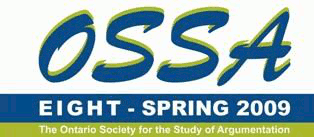
Location
University of Windsor
Document Type
Paper
Start Date
3-6-2009 9:00 AM
End Date
6-6-2009 5:00 PM
Abstract
The art of “safely” criticizing the powerful through indirect argument was a well-established concept among ancient rhetoricians. It is not difficult to see the usefulness of such indirection in cultures where free speech is limited. What use, however, do these arguments have in a democracy? In exploring an answer to this question, I consider Montaigne’s “Des Cannibales” (1595) and Emerson’s “Montaigne, or, the Skeptic” (1850).
Creative Commons License

This work is licensed under a Creative Commons Attribution 4.0 International License.
Response to Submission
Stephen Pender, Commantary on Carlos
Reader's Reactions
Stephen Pender, Commantary on Carlos (June 2009)
Included in
Indirection in Montaigne’s “Des Cannibales” and Emerson’s “Montaigne; or the Skeptic”
University of Windsor
The art of “safely” criticizing the powerful through indirect argument was a well-established concept among ancient rhetoricians. It is not difficult to see the usefulness of such indirection in cultures where free speech is limited. What use, however, do these arguments have in a democracy? In exploring an answer to this question, I consider Montaigne’s “Des Cannibales” (1595) and Emerson’s “Montaigne, or, the Skeptic” (1850).
